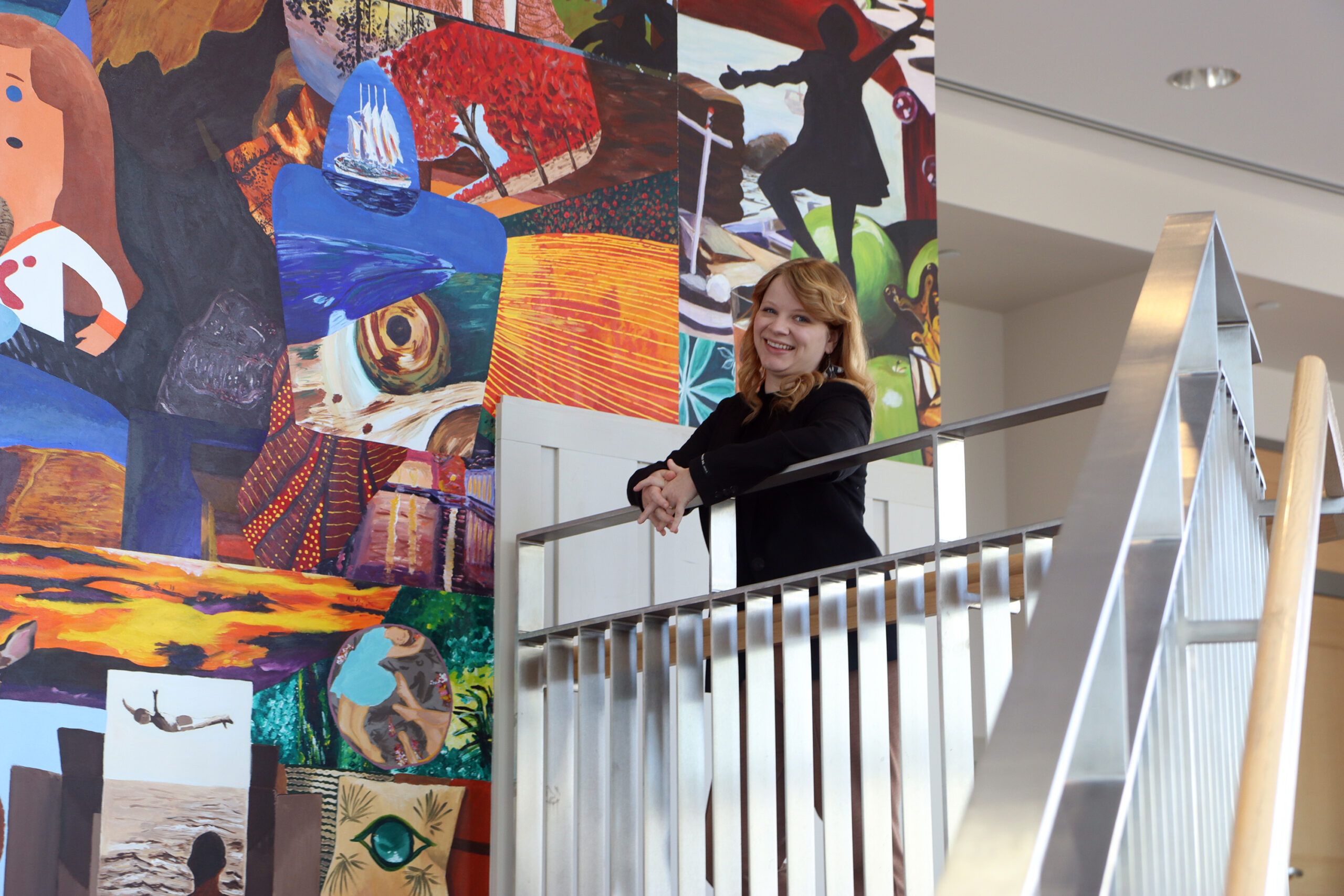STAFF – LSA Carbon Neutrality Program Manager
“So I did grow up in a smaller town, in Kentucky. For anyone who grows up in that town, it’s cool to go downtown and see the flood wall…there are murals on the flood wall. You learn very early in your elementary education that there was this big flood in 1937 in Paducah, and it just wrecked everything, there are all these photos everywhere of like cows taking refuge on the roof of the local businesses in the downtown area. This was the worst thing, one of the worst natural disasters that we remember. And we planned our entire community around responding to that risk. We were very in touch with the river.
But I remember the first time that they had to close the flood wall. And you could see the water lapping over the top of this wall, meaning that it was a worse flood event than they could have predicted. And then I remember the water creeping up the next year, and again the next year. And then I think the tipping point was my own house. I lived further out into the country, so my family drove into the city to experience the flood wall – But it flooded back home one year and it was really challenging for my family to go through that process of fixing it up and getting everybody back where they needed to go. And then it happened again the next summer. And it was such a process with insurance. Because [our insurance told us], there’s a lot of flooding that happens in the area that you live in, it’s actually floodplain, good luck getting the insurance to cover multiple years in a row of flood damage.
And so it was only when I got to college [that] I realized Kentucky had lost 80% of its wetlands in the area that I lived that would have kind of absorbed some of the shock of these bigger rain events. And it’s the same here. It’s the same in Indiana, it’s a very common Midwestern challenge. So…water was the thing for me that made it easy. I got really interested in paying attention to that detail about the world and that’s kind of what helped me understand it better. I think a lot of folks probably have that story where they pay attention to something specific, they notice that that gets stranger over time. And then you get context later in your life maybe or maybe people now are getting that earlier. But when I was growing up, that was not the language, climate change was not the language that we used to talk about it.“

“I think the most important thing to understand about climate change is [that] you’ll hear people call it a threat multiplier. It’s a little bit jargony, but basically what it means is the other things that are challenging about living on the planet right now, in terms of food equity, in terms of housing, affordability, and availability. All of that– national security even– it gets more challenging to respond to that, and take care of people, when the baseline conditions of the planet are evolving. But it also means, you know, there’s a lot of different ways to get involved in the climate crisis, like working on urban farms, trying to restore food pathways in communities that have been redlined, or working on really specific wetland restoration projects. There are a lot of opportunities to help on this. And it also means that there’s a lot of people all over the planet who are thinking about this.
I think that’s why a university is such a great place to work on this because it can be an impact multiplier. I’m excited to come back to this in 10 years, and see how Michigan is doing and how the people who have participated in this are doing because we are at such a trampoline kind of moment for this. There’s a lot of investment and in all of these research opportunities on campus, I think that students are asking the hard questions of folks who have responsibility for decisions on campus. If you think about all of the research that’s happening here, and it can be challenging to get all the different pieces to talk to each other, but just think about what is possible, an environment where I know that people at the university are doing this here and at SEAS and Graham. How do we distribute out what we learn, and really put an emphasis on getting it to communities that need that extra attention to overcome historic inequities in the face of a never before seen climate situation?“
As part of the LSA Year of Sustainability, LSA Dean’s Fellow Cherish Dean sat down with a range of students, staff, and faculty across the University to illustrate the various relationships people across campus already have to this work, to showcase ways people can get involved, and to highlight the reasons that this work should matter.
To view an abbreviated transcript of Cherish’s full conversation with Caitlin, click here.
Cherish can be reached at [email protected]. To contact the LSA Year of Sustainability Team as a whole, please contact [email protected] .

